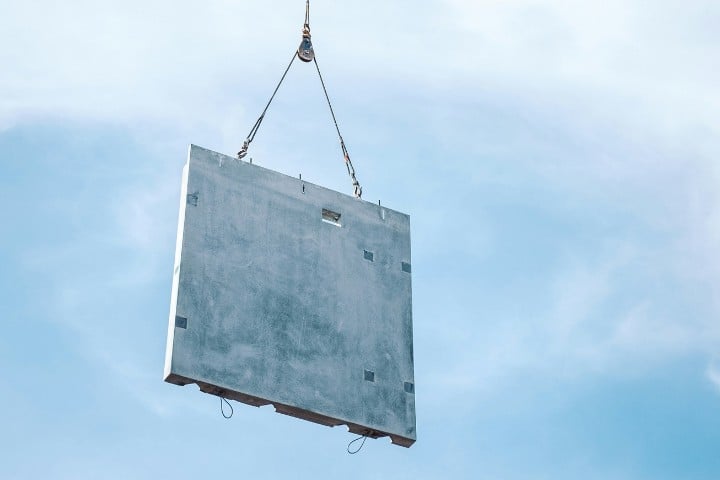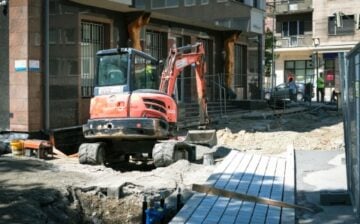Concrete is the steadfast backbone of residential infrastructure, providing a stable anchor for homes. It is the material that supports our buildings, the ground beneath our feet, and the surface that our day-to-day existence is painted on. Concrete is known for its strength and durability, but it is not immune to the effects of time or the elements. Many factors affect how long it lasts, and homeowners who want to protect their investment and preserve the integrity of their property must be aware of these subtleties.
We set out on an exploration, discovery, and enlightening journey into the world of residential concrete with this comprehensive guide. We’ll go deeply into the factors that affect concrete’s longevity, solving the puzzles that affect it and revealing the tricks to prolonging its life. We’ll show you how to keep residential concrete surfaces attractive, useful, and structurally sound for many years to come—from the initial installation phases to the continuing maintenance and care procedures.

The following factors affect how long residential concrete lasts:
-
Material Quality:
- The quality of the materials used to build any concrete structure is its foundation. Every element, from the cement to the aggregates, is essential to the strength, longevity, and durability of the concrete.
- Superior ingredients, carefully chosen and blended, create the foundation for a concrete surface that will not deteriorate over time.
-
Appropriate Installation Methods:
- The foundation is formed and the potential for longevity is forged during the installation process. Appropriate methods, such as exact mixing, rigorous compaction, and careful finishing, are necessary to guarantee residential concrete’s structural integrity.
- Paying close attention to detail is crucial, from the time the concrete is poured until the finisher makes the last trowel strokes.
-
Environmental and Climatic Factors:
- The hand of nature can be a residential concrete’s friend or enemy. Environmental elements can damage concrete surfaces in a variety of ways, from the intense heat of the sun to the relentless assault of winter’s freeze-thaw cycles.
- It is essential to comprehend the particular difficulties presented by climate and environmental factors in order to put protective measures in place that keep residential concrete safe.
-
Maintenance Procedures:
- Residential concrete needs care and attention to survive, just like any other living thing. Its longevity depends on routine maintenance procedures including cleaning, sealing, and repair.
- When maintenance is neglected, concrete becomes more susceptible to the effects of aging. Dirt, moisture, and other impurities can seep into the surface, compromising the structural stability of the material.
Tips for Increasing the Lifespan of Residential Concrete:
- Select a trustworthy contractor, such as rocketcretehuntsville.com, who has a track record of producing high-quality work with meticulous attention to detail.
- Make using high-quality materials a priority, and when installing, make sure you follow the right mixing and placement procedures.
- Give recently installed concrete the time and environment it needs to reach its ideal strength and durability by allowing it to cure properly.
- Take preventative action to guard against moisture penetration and surface deterioration, such as sealing concrete.
- Check concrete surfaces on a regular basis for wear or damage, and take quick action to fix any problems to stop further degradation.
- Concrete surfaces should be regularly cleaned with water and a mild detergent to get rid of debris, stains, and dirt that can eventually erode the surface.
- To preserve the protective layer and increase the concrete’s lifespan, apply a new coat of sealer every few years.
- Refrain from applying abrasive chemicals or de-icing agents as they may harm residential concrete surfaces and hasten their degradation.
- For concrete structures, think about adding reinforcement to increase their strength and longevity, like wire mesh or rebar.
- Create a personalized maintenance schedule with the assistance of a qualified concrete contractor that is suited to the particular requirements of your residential concrete surfaces.
In Summary:
In conclusion, careful planning, careful execution, and continuous maintenance are the reasons why residential concrete lasts so long—rather than being a random phenomenon. Homeowners can guarantee that their concrete surfaces stay robust, long-lasting, and aesthetically beautiful for many years to come by being aware of the elements that affect concrete longevity and taking proactive steps to safeguard and preserve its integrity. Residential concrete is a living example of the strength of human ingenuity and the resiliency of the natural world, from the time of installation to the years of devoted service that come after. Homeowners can maximize the lifespan of their residential concrete surfaces and reap the benefits for future generations with the correct information, maintenance, and care. Learn more about RocketCrete Huntsville and how they can partner with you to ensure the longevity and durability of your residential concrete surfaces.
We hope you found this blog post on A Guide To Residential Concrete’s Longevity And How To Make It Last, useful. Be sure to check out our post on Boosting Your Home’s Value with Home Renovations for more great tips!
Have Experience in the Moving Industry? Want an Additional Income Stream? Work With All Around Moving!
We provide the tools and training to help you start your own business. Reserve your partnership with us today. Click here to learn more.





